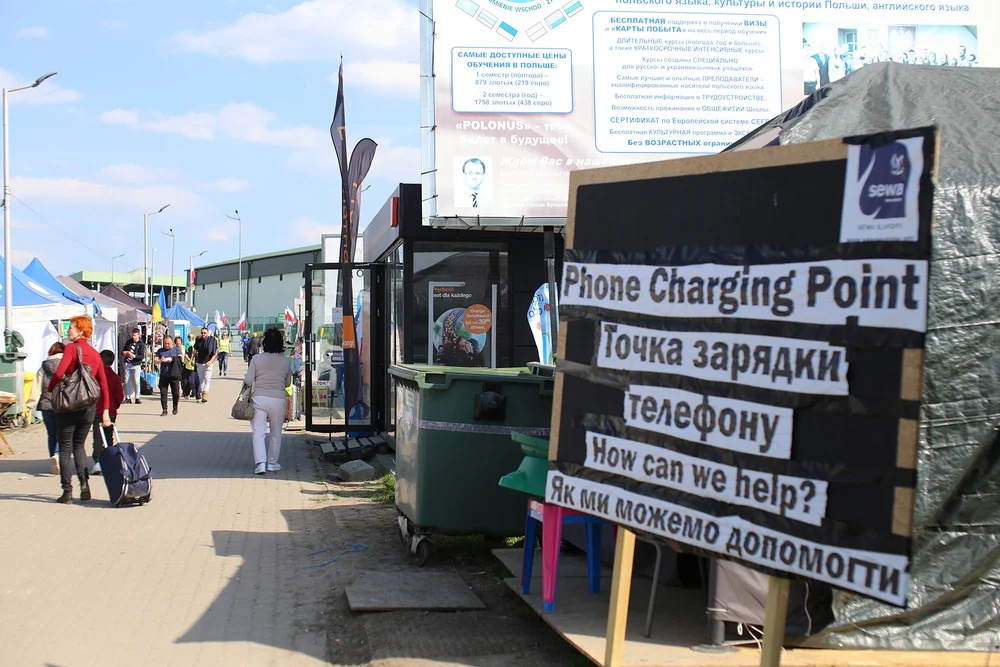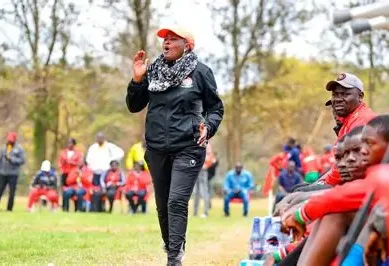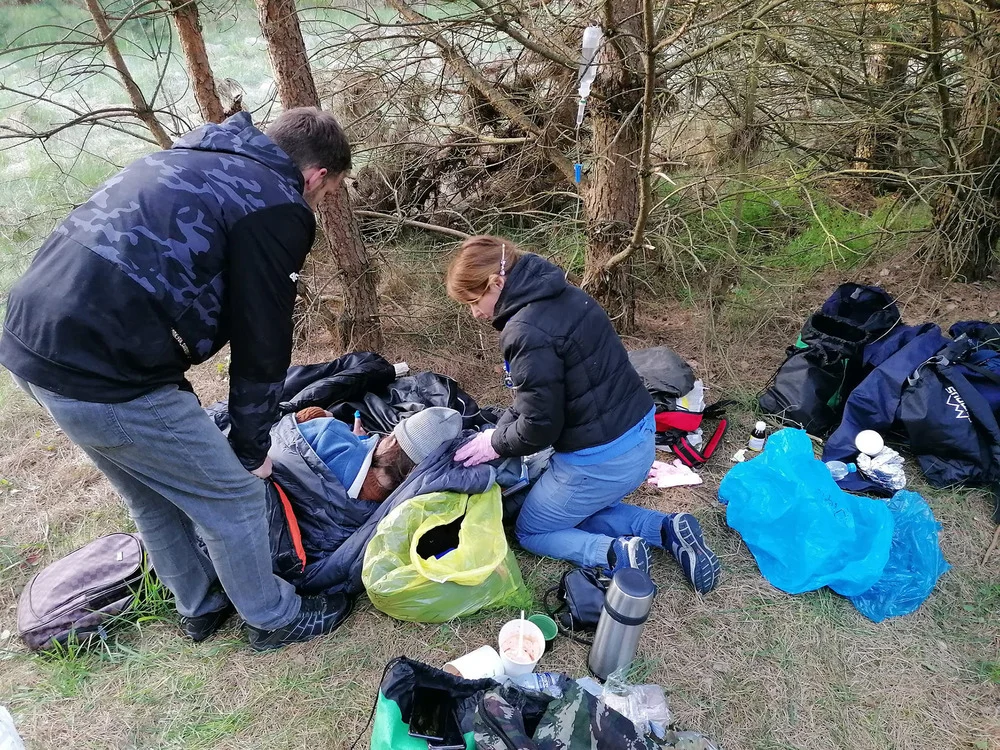
Human rights groups in Belarus have also documented abuses – including beatings and torture – carried out by local security forces.
Khaled Mohebi, a 27-year-old from Afghanistan, reported that when the Polish border guards pushed him back to Belarus when he first attempted to cross last October, Belarusian security forces arrested him, set dogs on him, tortured him with electric shocks, and beat him with their guns. Mohebi has since made it to Germany.
Ahmed, who also alleged that he was abused by Belarusian security forces, said he was afraid of being returned from Poland to Belarus, which is one reason he quickly left for Germany after making it across the border.
“If we ask [Belarusian security forces at the border] to go back to Belarus, they will definitely kill us,” he said, expressing a fear stemming from the abuse he experienced.
Construction of Poland’s border wall – which will cover 186 kilometres, or about half of the country’s border with Belarus – is scheduled to be completed in June, according to Michalska, the Polish Border Guards’ spokesperson.
The volunteers we spoke to doubted the wall would deter people from attempting to reach Poland, but they did worry that it would make the crossing more dangerous – and potentially deadly.
Like border walls elsewhere, the wall in Poland is being built where it is easiest to cross, meaning those who attempt the journey once it is complete will be forced to take longer routes through more difficult terrain.
Meanwhile, volunteers in the border region are already shorthanded. “There are fewer volunteers to help, but there is just as much work as before,” Mariusz Kurnyta, a 35-year-old volunteer, said.
Many of the volunteers who were active at the height of the crisis last year have turned their attention to Poland’s border with Ukraine, drifted away, or become deterred by the Polish government’s growing crackdown on their activities at the Poland-Belarus border.
“The army is much meaner and more focused on disturbing our work,” said Alboth, from Minority Rights Group, comparing the situation to last year.
“We have the feeling that, first, there are more [soldiers and border guards], but second, that they are more aggressive and active to find us,” Radwańska added.
A state of emergency declared last year, which established a three-kilometre zone along the border that NGOs and journalists are barred from entering, remains in effect; and KIK’s aid station has been raided twice recently by Polish police. One of the group’s volunteers, 20-year-old Weronika Klemba, was arrested on 25 March in the off-limits zone and has been charged with organising an illegal border crossing, according to Radwańska. If convicted, Klemba faces up to eight years in prison.
“We volunteers shouldn’t be doing this. The fact that we are means the system is broken.”
On March 23, Polish border guards arrested four volunteers who were helping a family with small children at the border. The volunteers were detained for three days and are also facing up to eight years in prison.
Kurnyta said he was also fined 5,000 Polish zloty (about $1,160) after being caught in the three-kilometre zone in March providing humanitarian support to asylum seekers and migrants in the forest.
‘We feel that there is no one to call’
“We [volunteers] shouldn’t be doing this,” Helena Zoltowska, another volunteer at the KIK aid station, said. “The fact that we are means the system is broken.”
The humanitarian response should be the responsibility of organisations like the UN’s refugee agency (UNHCR) and the Red Cross, but the Polish government has barred international organisations and NGOs from entering the border zone, Zoltowska added.
Meanwhile, with all the attention focused on Poland’s border with Ukraine, fewer journalists and politicians are shedding light on what is happening in the forest.
“We feel that there is no one to call,” Zoltowska said.
If the number of people crossing from Belarus to Poland does increase in the coming months, the only lifeline for those who end up stuck in the forest will be the dwindling number of volunteers.
“[Asylum seekers and migrants] are never, ever, prepared to go to the forest,” Ewa Dymek, one 34-year-old volunteer, said. “Often, they think they will die in the forest, and that they are alone; that the world forgot about them.”
- The New Humanitarian report








